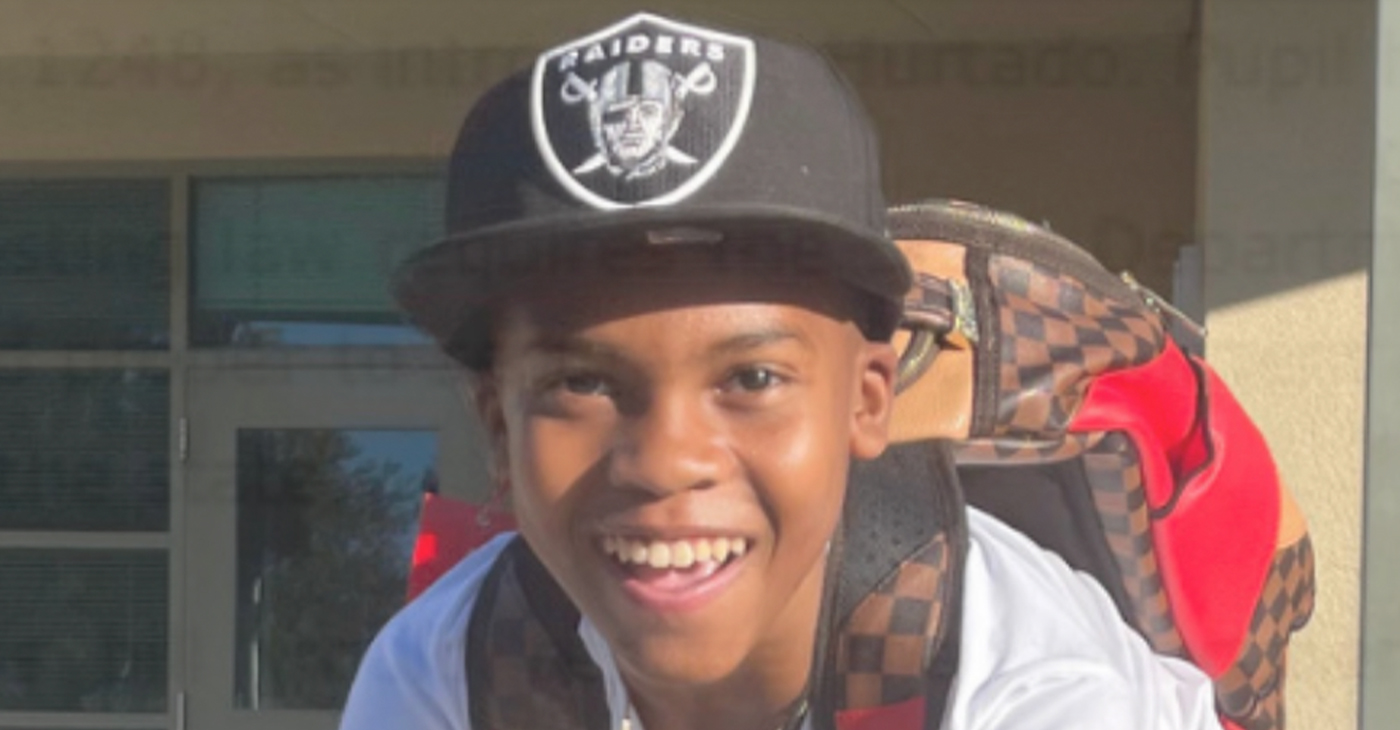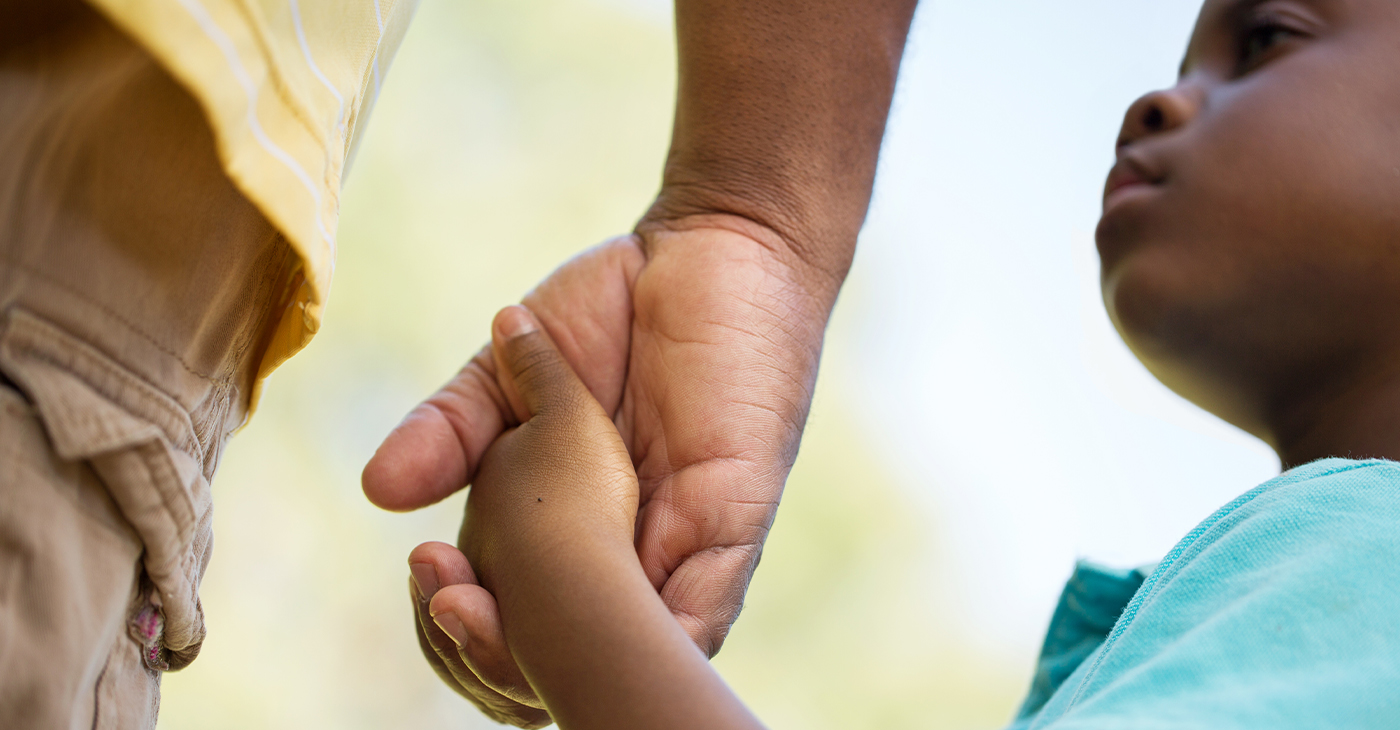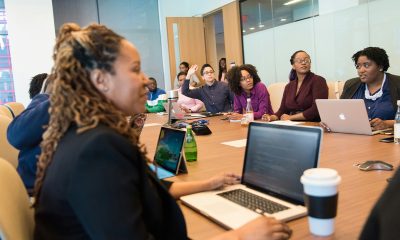Government
Prince George’s Tackles Criminal Justice Reform for Youths
WASHINGTON INFORMER — Prince George’s County State’s Attorney Aisha Braveboy announced a plan Wednesday that seeks to eliminate the school-to-prison pipeline, but with some help. Braveboy, who was elected to office last year, said she will depend on resources from the public school system, sheriff’s office and nonprofit organizations to support a youth justice reform plan.
By William J. Ford
Prince George’s County State’s Attorney Aisha Braveboy announced a plan Wednesday that seeks to eliminate the school-to-prison pipeline, but with some help.
Braveboy, who was elected to office last year, said she will depend on resources from the public school system, sheriff’s office and nonprofit organizations to support a youth justice reform plan.
“I feel really strong about this because we cannot institutionalize our young people,” she said at the county administration building in Upper Marlboro. “Once they get in a system, mentally they think of themselves as part of the system. What we want young people to know is the community cares about them.”
Although community interventions and diversion programs aren’t new, Braveboy described the initiative led by the state’s attorney’s office to help at-risk youth as a “family approach.”
Instead of some youths being processed and tried in juvenile court for certain offenses, the person’s records will be reviewed to determine if mental health, social or other services are warranted.
For instance, Key Bridge Foundation in Largo will provide mediation sessions to handle certain conflicts.
The county will host its first Juvenile Justice Summit at Bowie State University in November for youth and adults to identify causes of behavior. In addition, possibly provide recommendations on state legislation toward criminal justice reform.
Community Public Awareness Council (C-PAC) of Kettering will mentor youth.
The group helped Imani Williams, 16, to change from a troubled, verbally abusive teenager to an honor-roll student at Friendly High School. When this upcoming school year starts Sept. 3, the senior will serve on the school’s peer mentoring group to assist incoming freshmen.
“I’ll tell them do the right and don’t do the things I did,” she said standing beside her mother and grandmother. “Ninth-grade year is not the year to play around. Stay out of trouble. Keep your grades up. Study and do your homework. Stay away from the bad crowd.”
Juveniles assessed and charged with serious offenses such as gun possession and assault would still be processed.
Prince George’s schools CEO Monica Goldson said the focus will not only push for a decrease in the suspension rate, but also call on school resource and police officers to become mentors.
“Relationships help to breed trust and accountability,” she said. “It allows us to have our students come to them for assistance and support. The only way we can do that is to make sure we train and retrain our police officers, our investigative counselors and security assistants to make sure they become those kinds of mentors our children need.”
This post originally appeared in The Washington Informer.
Activism
Oakland Post: Week of April 17 – 23, 2024
The printed Weekly Edition of the Oakland Post: Week of April 17 – 23, 2024

To enlarge your view of this issue, use the slider, magnifying glass icon or full page icon in the lower right corner of the browser window. ![]()
California Black Media
Yahushua’s Law: Senate Advances Bill to Protect Students from Extreme Weather
In a significant move towards student safety, the California Senate Education Committee passed Senate Bill (SB) 1248, also known as Yahushua’s Law, on April 3. The bill is named in memory of Yahushua Robinson, a 12-year-old student from Lake Elsinore, who tragically died due to a heat-related illness during a physical education class in 2023. It is a pioneering effort to prevent similar incidents in the future.

By California Black Media
In a significant move towards student safety, the California Senate Education Committee passed Senate Bill (SB) 1248, also known as Yahushua’s Law, on April 3.
The bill is named in memory of Yahushua Robinson, a 12-year-old student from Lake Elsinore, who tragically died due to a heat-related illness during a physical education class in 2023. It is a pioneering effort to prevent similar incidents in the future.
Authored by Senator Melissa Hurtado (D-Bakersfield) and co-authored by Assemblymember Akilah Weber, M.D. (D-La Mesa), SB 1248 directs the California Department of Education to develop comprehensive guidelines for schools regarding student activity during all extreme weather conditions.
“No student should ever lose their life on campus to extreme weather when we can take steps to protect them by preparing statewide plans to minimize exposure to the most harmful elements of exposure,” Hurtado said after introducing SB 1248.
The bill stipulates that schools must implement safety measures which include monitoring weather forecasts, postponing or relocating outdoor activities during hazardous conditions, and ensuring students have proper hydration and access to shade. It also requires schools to establish clear communication plans to keep parents, teachers, and students informed about potential weather hazards.
Supporters of the bill include the Robinson family, advocate Christina Laster, Bold Enterprises LLC, California Black Women’s Collective Empowerment Institute, Familias Empoderadas del Valle Central National Action Network, The Black Student Advocate, and the Ventura County Alumnae Chapter of Delta Sigma Theta Sorority.
Thanking Hurtado for introducing this crucial legislation, Weber said, “The story of Yahushua Robinson last year was heartbreaking. We have protections for farm workers and other industries in the case of extreme weather, now climate change is forcing us to also extend similar protections to students at school.”
City Government
LAO Releases Report on Racial and Ethnic Disparities in California Child Welfare System
Racial inequalities in California’s child welfare system disproportionately impact poor Black and Native American children, according to a report released April 3 by the nonpartisan Legislative Analyst’s Office (LAO). The report, which was presented to the Assembly Subcommittee No. 2 on Human Services — chaired by Assemblymember Corey Jackson (D-Moreno Valley) — states that the proportion of low-income Black and Native American children in foster care is four times larger than other racial and ethnic groups in the state.

Racial inequalities in California’s child welfare system disproportionately impact poor Black and Native American children, according to a report released April 3 by the nonpartisan Legislative Analyst’s Office (LAO).
The report, which was presented to the Assembly Subcommittee No. 2 on Human Services — chaired by Assemblymember Corey Jackson (D-Moreno Valley) — states that the proportion of low-income Black and Native American children in foster care is four times larger than other racial and ethnic groups in the state. Half of the children from each racial group has experienced some level of child welfare involvement before reaching legal age.
Jackson is a member of the California Legislative Black Caucus.
“Racial and ethnic disproportionality and disparities are present within initial allegations and persist at all levels of the system — becoming the most pronounced for youth in care,” the report states.
The disparities have persisted over the last decade across the state, the LAO found, adding that Black children living in poverty are more likely to enter foster care. State data shows that there is a correlation between poverty and foster placement in each county.
“Throughout all levels of the child welfare system, families experiencing poverty are more likely to come to the attention of and be impacted by the child welfare system,” stated the report.
Overall, the report revealed that more than half of the families affected by the state child welfare system earn $1,000 per month, significantly less than the national average of $5,000 a month.
The financial disparities highlighted in the LAO report align with existing research indicating that poverty is among the main factors contributing to the likelihood of child maltreatment. State anti-poverty programs include cash aid, childcare subsidies, supportive housing, and nutrition assistance.
-

 Activism4 weeks ago
Activism4 weeks agoOakland Post: Week of March 20 – 26, 2024
-

 #NNPA BlackPress3 weeks ago
#NNPA BlackPress3 weeks agoCOMMENTARY: D.C. Crime Bill Fails to Address Root Causes of Violence and Incarceration
-

 #NNPA BlackPress4 weeks ago
#NNPA BlackPress4 weeks agoFrom Raids to Revelations: The Dark Turn in Sean ‘Diddy’ Combs’ Saga
-

 #NNPA BlackPress3 weeks ago
#NNPA BlackPress3 weeks agoMayor, City Council President React to May 31 Closing of Birmingham-Southern College
-

 #NNPA BlackPress4 weeks ago
#NNPA BlackPress4 weeks agoCOMMENTARY: Lady Day and The Lights!
-

 Activism3 weeks ago
Activism3 weeks agoOakland Post: Week of March 27 – April 2, 2024
-

 #NNPA BlackPress4 weeks ago
#NNPA BlackPress4 weeks agoBaltimore Key Bridge Catastrophe: A City’s Heartbreak and a Nation’s Alarm
-

 #NNPA BlackPress4 weeks ago
#NNPA BlackPress4 weeks agoBaltimore’s Key Bridge Struck by Ship, Collapses into Water














































1 Comment